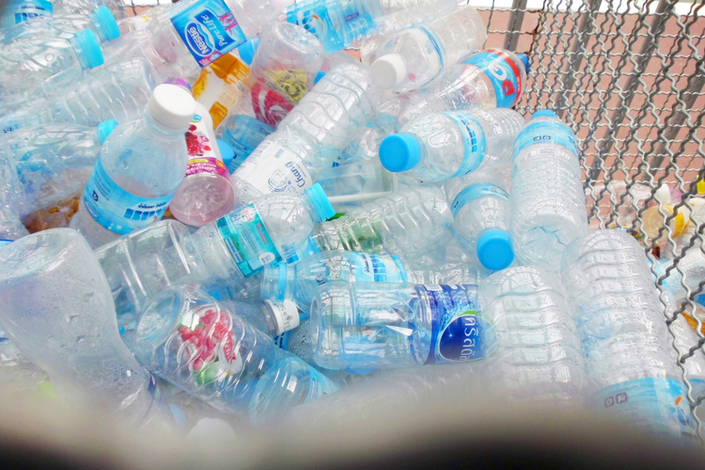Environmental education will move into the residence halls for some University of Virginia first-year students.
The resident advisers in the McCormick Road residence houses are participating in the Teach Residents Everything Environmental program, an introduction to sustainability on Grounds overseen by the student-run organization Green Grounds.
“The resident advisers are being trained to pass on to the residents about reusable mugs, shower timers, how to recycle and how to conserve energy,” said Nina Morris, program manager for outreach and engagement in the Office for Sustainability.
Megan McDaniels, an executive co-director of Green Grounds and one of the people who will be instructing the resident advisers, said the TREE program would promote sustainability on Grounds. She said while there are many sustainability programs and movements on Grounds, there has been no single foundation for sustainability education.
“We hope that all the students can have a baseline knowledge of sustainability, knowledge they can use in their personal lives and in their work lives,“ she said. “We hope this will spread the message more effectively.”
McDaniels, a rising fourth-year environmental and biological conservation and global development studies double major, noted that many students enter the University with some knowledge of sustainability, but the TREE program will teach them how it is done at U.Va. She noted, for instance, that the University recycles more categories of plastics than do many of the students’ home communities, and recyclables are source-separated, instead of put into a “single stream” recycling system.
“We talk about green dorm tips, sustainable dining, transportation and ways to get around Grounds and Charlottesville and guides to further sustainable resources,” McDaniels said. “We get people from a range of backgrounds and we can’t assume that they all have the same level of knowledge. This way we can start everybody on the same page.”
Ida Yu, who graduated in 2014, first imagined the program while a student volunteering with Green Grounds. She thought there was a general lack of sustainability knowledge among students.
“I found that a huge number of students had no idea how to properly compost and recycle, despite posted signs,” she said. “I’d had some experience doing sustainability education with elementary-aged students and I realized that direct, person-to-person education was the critical missing component.”
A member of the executive board of Green Grounds, Yu thought the student environmental groups could do more for the students.
“Even though the sustainability movement at U.Va. is certainly robust, it was often quite insular and didn’t reach the broader student body,” she said. “There needed to be a way to communicate with more students, and first-years, new to Grounds and still forming new habits and opinions, were the perfect audience. It made sense to attach the project to first-year orientation, since that’s the time when RAs are introducing their residents to life at U.Va.”
With encouragement from the Office of Housing and Residence Life, Yu started developing her program and as graduation neared, she turned it over to McDaniels and Suchita Chharia, then new members of Green Grounds’ executive board, who brought Yu’s concept into a reality.
“It’s evolved to become something even better and more comprehensive than I envisioned it,” Yu said. “It includes more material and has taken on a sophistication that I couldn’t have imagined. And not only is it great as is, but the project has so much potential for expanding into something even better.”
The program also includes some tangibles for the students, including a reusable coffee mug that offers them discounted and free coffee, and low-tech, five-minute small hourglasses to measure and limit their showers. McDaniels noted that students usually take longer showers than they are aware, and that a 10-minute shower can use between 20 to 35 gallons of water.
“This way they can time themselves and be aware of how much water they use,” McDaniels said. “We want to work on the behavioral side and the resource conservation side.”
While Green Grounds is teaching the resident advisers, “it will be up to the resident advisers how they pass the information on,” Morris said. “But it also gives them a wealth of knowledge with which to answer student questions.”
The program’s sponsors will track how frequently the coffee mugs are used on Grounds and if there is a reduction in water use from the previous year in the residence halls, as well as queries to sustainability groups on Grounds.
McDaniel said that the pilot program should reach about 1,200 first-year students this year, with hopes of expanding it to the other first-year residence halls the following year. She also wants to develop a component to work with transfer students coming to U.Va.
McDaniels said creating the program taught her to dream big. “I learned how to look at something from the outside, how to craft a message that resonates with diverse groups and how to get people to support something, which are huge learning experiences.
“I learned that I am an optimist and a big-ideas person who sometimes needs to slow down. And I learned that sometimes if I want to help people understand something, I need to dream big and be crazy.”
Yu – now working as a part-time intern at a small organic farm in Madison, Wisconsin, and doing part-time, farm-to-school education for AmeriCorps – learned that one person’s small idea may create big changes, but only with the help of others.
“I learned that I needed to stop being afraid of pursuing what I care about and what I think is truly important,” she said. She is currently looking for full-time sustainability work.
Media Contact
Article Information
August 17, 2015
/content/student-initiative-offers-incoming-first-years-tree-sustainable-knowledge

